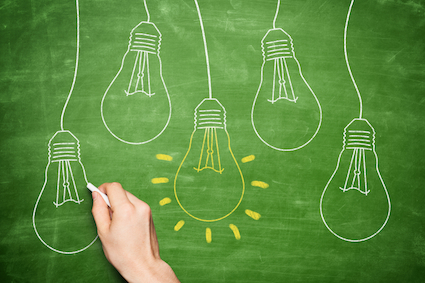
Learning a language is like riding a rollercoaster. The first time you say hi to someone or do your shopping in the new language, you feel on top of the world: this is easy! I can do it! Then there are days when your tongue feels like it's made of lead, you've forgotten all your vocabulary, and people are just talking too fast. Your heart sinks, you feel a little low - and then, after a while, you get back on track.
I've been through these experiences both as a student and a teacher. In my daily life, I'm trying to learn and use new languages, and it is as thrilling as it is challenging. In my work as a teacher, I watch my students go through different emotions and attitudes, and I'm right there with them in the rollercoaster cart. This student finally remembered the difference between "thirteen" and "thirty"? Amazing! That student just forgot how to conjugate the verb "to be"? Well, not such a great day at the office.
But then there's the plateau. Once you reach a certain point - often around intermediate or upper-intermediate level - things slow down. You've puffed your way up to the top, and although the view's nice, it's also boring. The quick results and easy wins of the early stages have finished. When I ran into this problem, I went looking for help, and some of the best advice I found came from the world of fitness. Whether you're training for a race, getting into lifting or working on weight loss, it's very common to hit a plateau. You're still putting in the effort, but you're just not getting the same results. And when it comes to fitness, there are two ways to beat a plateau:
1. Keep going
2. Change what you're doing
Those two points might sound contradictory, but they're not. When I say "keep going", I mean keep going with your effort, motivation and positive attitude. When I say "change what you're doing", I'm talking about the methods and materials you use to learn or teach. It's easy to reach a certain level in English and decide that that's enough - you can survive, can't you? And yes, you can. But you're going to miss out on the joy of real fluency and the richness of English - its music, literature and culture.
So the key is to maintain your curiosity about the language, and use that curiosity to find new ways to learn. For example, I encourage my students to read, watch TV and listen to music in English. These are fun, creative activities that bring them into contact with fluent spoken English. If you want to make it more interactive, there are some brilliant sites out there - such as www.lyricstraining.com , which requires you to hear and spell lyrics correctly before the music plays on. You could try other ways to change up your learning methods. For example, if you or your students are used to writing grammar exercises, try online practice, like www.kahoot.com. Answering questions in a different format and with different tools challenges your brain to work a little harder. Instead of reading exercises, try challenging yourself to read the news, or a short story. Instead of practising writing exams, why not keep a diary?
The best way to learn a language is to use it. So if you or your students are struggling with a plateau, try to move beyond the idea that English is a classroom subject: in fact, each language is a whole way of life. And as soon as you challenge yourself to really live a language, you’ll find that the rollercoaster has started to pick up speed again.